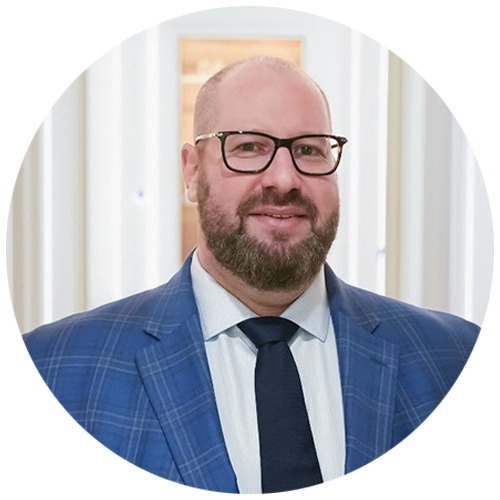
Overactive bladder and incontinence.
Surgical management and advanced therapy.
Essential considerations and practical tips for pelvic health PTs and OTs on post-op management and strategic collaborative care to optimize patient outcomes.
79$
August 7th. 6-7:30pm EST. Online Zoom.
Your instructor
Dr. Daniel Liberman, MD, MSc, FRCSC
Urologist
Dr. Liberman completed his medical training at McGill University and his urology specialty at the Université de Montréal. He also completed Master’s in Biomedical Sciences at the Université de Montréal.
Dr Liberman completed two fellowships in genitourinary reconstruction and female urology at the University of Minnesota and Metro Urology. Dr. Liberman specializes in the treatment of urethral strictures and the management of complications after prostate cancer treatment. Dr. Liberman also sub-specializes in advanced treatment of female incontinence, overactive bladder and pelvic pain.
In the field of research, Dr. Liberman has over forty publications published in peer-reviewed journals and more than fifty presentations.

Info you’ll be able to use right away in-clinic to help your patients.
What you’ll learn.
Essential considerations
What are the essential considerations for treating post-operative stress incontinence patients? What are the expectations for proper post-op care? Additionally, what should be taken into account when treating patients with overactive bladder and urinary urge incontinence?
Latest advancements
What are the latest advancements in stress incontinence surgeries? What are the outcomes of sling procedures and artificial urinary sphincters? What are the advanced therapeutic options for managing overactive bladder (OAB) and urinary urge incontinence?
Insights and practical tips
How can you optimize post-surgical rehab and long-term patient management for stress incontinence? What are the selection criteria for botulinum toxin (Botox) injections and neuromodulation therapies, and how can you better collaborate to manage OAB and urge incontinence?
79$
Online Zoom. August 7th. 6-7:30pm EST.
Frequently asked questions
-
Great question! This course by Dr. Zorn gives you the important information you need to understand about the latest advancements in BPH surgery and what are key things you need to consider post-op to get the best results for your patient.
This course also covers the key terms you need when communicating with the referring urologist to enhance interdisciplinary collaboration. Because often times, as PTs and OTs we use key terms that urologists might not understand and we might share information that are not interpretable by urologists and therefore don’t have the interdisciplinary impact that we could have.
-
The course is online via zoom on June 1st from 10:00-11:30am EST.
The recording will be able for rewatch at your own pace. You will have a lifetime access to the recording.
-
Absolutely! You can watch the recoding and follow the course at your own pace. The recording will be available to watch within 48 hours.
-
Any pelvic clinicians who is interested in treating or already treating post-operative BPH patients can take the course in order to get a better perspective on how to help their patients and better communicated with urologists to maximize patient care.
-
Yes, upon successful completion of a course, you will receive a certification acknowledging your achievement.
-
Absolutely, our courses can be eligible for CEU credits!
We’re not submitting this course for CEUs pre-approval so it's up to each individual to submit for CEU’s within their respective state.
We’re happy to provide you with the necessary documentation in order for you to submit for consideratio.
-
We welcome any health professionals has male pelvic health within their scope of practice. As always, it is the responsibility of a course participant to guarantee that they are legally able to conduct the techniques taught in an IPC course prior to participating.
IPC courses are mostly attended by physical therapists. We have had physical therapist assistants, occupational therapists, physicians (urologist), nurses, chiropractors attend our courses.
-
All courses have been built to bring you maximal value and to give you the tried and tested assessments and treatments that yield results in-clinic. Or the very least you’ll walk away with one thing you can use right away in at your clinic.
We know what it feels like to take courses that are super theoretical and you’re left wondering how you can even apply what was shared in the course in your day-to-day practice.
Rest assured, at IPC we focus on the highly practical to not waste your time with fluff you don’t need.





